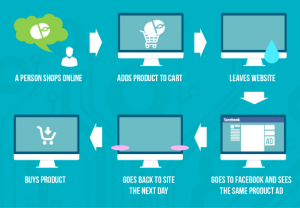Despite the growing popularity of e-commerce, the phone call remains crucial to businesses in any industry. It’s the moment when a lead turns into (or can potentially turn into) a paying customer. It’s the time for your sales service departments to shine. And it’s something you should be tracking in order to get a better idea of who your customer is, where they are coming from, why they’re calling you, and what they’re looking for. After all, you’re tracking online traffic, clicks, and conversions — why shouldn’t you track calls?
The number of calls driven to businesses from mobile organic and paid sources is expected to reach 162 billion by 2019, according to BIA/Kelsey. That’s a striking number — especially if you’re not keeping tabs on what marketing campaigns are driving phone calls. But call tracking alleviates that blind spot.
With call tracking software, the ability to determine where your calls are coming from is just the tip of the iceberg. Call tracking providers offer a number of powerful features that allow you to get a better understanding of your customer base. From basics such as call recording to more granular details like which keyword search resulted in a call, the insight you can gather from call tracking software can transform your marketing strategy.
There are plenty of call tracking providers out there on the market — the question is, which one is right for you? Here are four steps you can take to find the right call tracking service for your specific business.
1. Do your homework
Before you begin your search for the perfect call tracking provider, do a bit of preparation and soul-searching. Why, exactly, do you want to utilize call tracking in the first place? What do you want to keep better track of? Is it your online campaigns? What about offline campaigns, such as commercials or billboards? Knowing the exact information you’re missing from your current analytics process will help you narrow down your call tracking options and make searching for the right provider much easier.
Before getting to know your options, you need to truly know yourself. You should already be able to recite your Web traffic stats — how many visitors you get per month, per day, and per year — before even picking up the phone. This information is crucial for scoping out a call tracking provider, as many offer various types of packages based on this data. As an example the more visitors you have, the more tracking phone numbers you’ll need.
In addition, you should already have an idea of the type of phone number you want. Toll free? Local? Or like many people, you’d probably prefer to keep your own current business line phone number. Knowing the type of phone number you want will make narrowing down your options much easier.
Similar to a job interview, you should also prepare a list of questions to ask vendors when exploring their call tracking services. If you’re drawing a total blank, here are a few to jog your brain:
- What does the base package include and what are considered add-on features?
- What is anything is charged incrementally?
- Do you have any tools in place to protect businesses who share sensitive information over the phone?
- What tools do you have in place to combat robo dialing and call spam?
- Do companie like mine use your service?
- Why are you better than your competitors?
Be sure to brainstorm some other questions that are specific to your business. The more questions you have lined up, the easier it will be to find a solution that’s right for your needs.
2. Identify the features you want and need
Once you have the basics down, it’s time to determine which features you want in a call tracking solution. Features will vary per provider, but some essentials include:
- Free trials. How can you know if something will work for you unless you try it first? Look for a call tracking provider that lets you try before you buy.
- Quick and easy setup. Your time is precious, and you don’t want to waste it on a complicated setup process. Aim to find a call tracking solution that offers intuitive setup.
- No contract. Being able to drop your call tracking provider at any time is a huge plus. Make sure your call tracking provider is clear on its contract and fee policy.
- Call recording. The ability to listen back to phone conversations is extremely valuable for multiple reasons. For starters, you’ll have a better grasp on how your staff handles incoming calls — information you can use to better optimize training. Additionally, you’re able to hear firsthand who your customer is and what exactly they’re looking for, allowing you to better tailor your product and marketing strategy according to their needs. Finding a call tracking provider that offers easy-to-use call recording is a must for any business.
- Dynamic number insertion. Dynamic phone numbers change per visitor according to the source, allowing you to more accurately track incoming calls. This is the bread and butter of call tracking: knowing exactly where your calls are coming from in order to better optimize your marketing send.
Additional features you may want may to consider:
- In-depth information on callers. The more information you can gather about your customer, the better. Look for a call tracking provider that can provide you with insights such as:
- Caller location – Knowing where your calls are coming from is essential to analysis and reporting.
- Call time duration – How long does it take for a call to turn into a conversion? You may not know until you start paying attention to call duration.
- Call source – Which online or offline campaign led to the phone call?
Ideally, you’ll want to look for a call tracking provider that offers all this information in real time so you’ll be able to know who exactly your customer is as soon as your phone starts ringing.
3. Personalize your service to your business
While many call tracking providers offer a host of powerful features, the true beauty of call tracking lies in how it can be tailored to meet your specific business needs.
Software Integration
What products are you currently using? You’ll want to find a call tracking solution that integrates with products and service you already rely on, such as Google AdWords and Analytics, CRM programs, and marketing automation software. In addition, you may want to find a solution that works with your existing webhooks and API. This will give you a 360-degree view of your marketing efforts in one central location.
Call Tracking for Agencies
If you’re an agency, you’ll want to look for a provider that offers agency specific features, which may include these features:
- Centralized management. The ability to access all of your clients’ accounts from one main location is a huge bonus for agencies.
- Agent-specific call tracking. Tracking how agents handle calls and leads gives you in-depth insight into a specific employee’s performance.
- Client access. Back and forth communication with clients can be time consuming, which is why you may want to consider a call tracking solution that offers client access to the call tracking dashboard. This way, each client can see their own data any time they want.
- Custom branding. The ability to personalize the look and feel of your call tracking dashboard provides a seamless branding experience you’ll want to share with clients.
Have an idea for a feature that could be useful to you? Talk to your call tracking provider about it. You’ll be surprised at how willing they are to work with you to create a service that’s beneficial specifically to you — and potentially other businesses as well.
4. Investigate customer testimonies
As with any other service, it’s important to consider what other people think of the call tracking provider you have in mind. A great way to do this is by reading case studies, which your call tracking provider should have readily available on their website. When reading a case study about a business and their call tracking experience, take note of the following:
- What metrics did call tracking help to change?
- Did the business lower ad spend as a result of call tracking?
- Did they boost revenue?
- How did call tracking impact the bottom line?
Another way to gather customer feedback is by exploring software review platforms, such as G2 Crowd (essentially the Yelp of business software). There, you’ll be able to read thorough honest reviews from actual customers to get a better idea of how well your call tracking provider delivers results.
Although this may seem like a no-brainer, you should also try asking your peers. Starting a discussion online or in-person with colleagues is a great way to get a dialogue going about call tracking. Plus, a discussion may open the door to some valuable questions and insights you may have never thought of otherwise.
Conclusion
There is no one-size-fits-all solution when it comes to call tracking software. Finding the right call tracking provider for your business takes a bit of time and dedication, but the rewards are plentiful. By implementing call tracking software, you’ll be able to gain a better understanding of your customer base and ultimately set up your business for success.
If you’d like more information on how call tracking can help you calculate and better understand your ROI, download this informative white paper.
Digital & Social Articles on Business 2 Community(41)
Report Post




